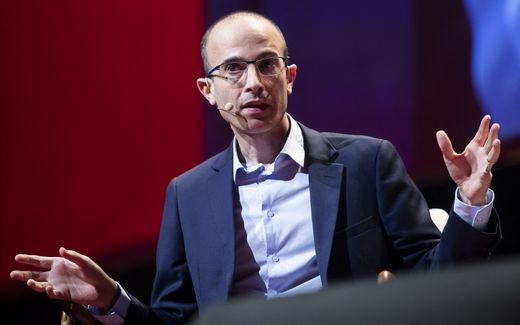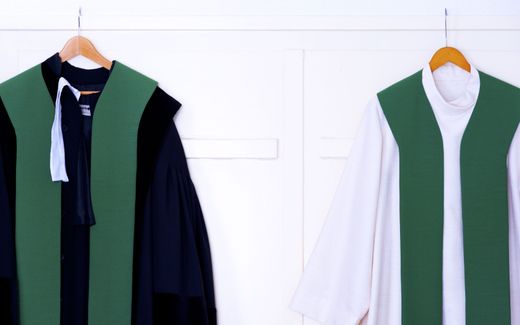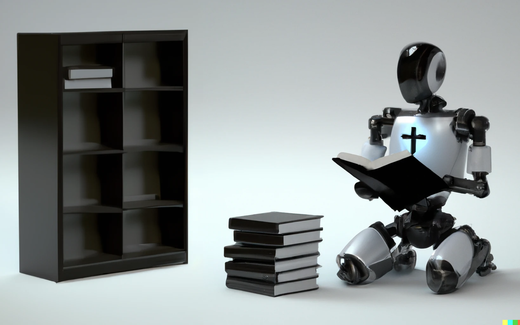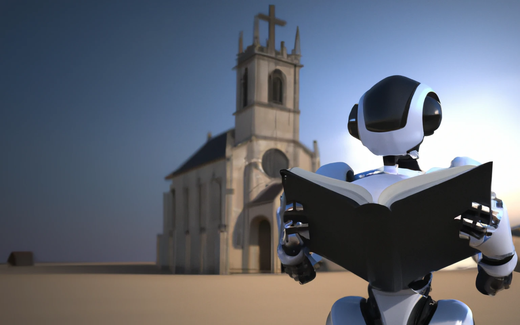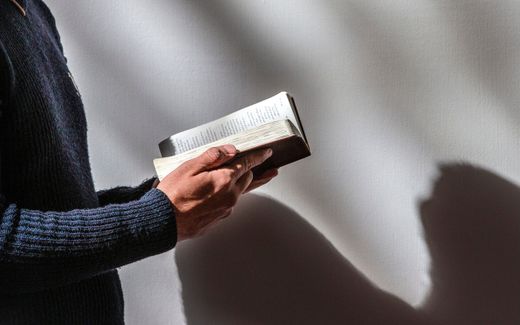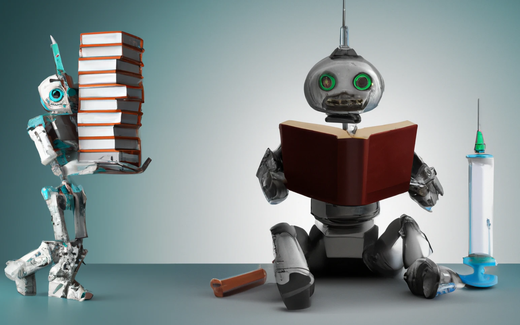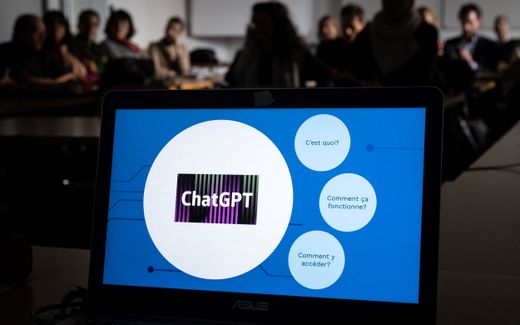Professor on AI: We are like children playing with a circular saw
03-07-2023
Western Europe
Janita van Hoeven, RD
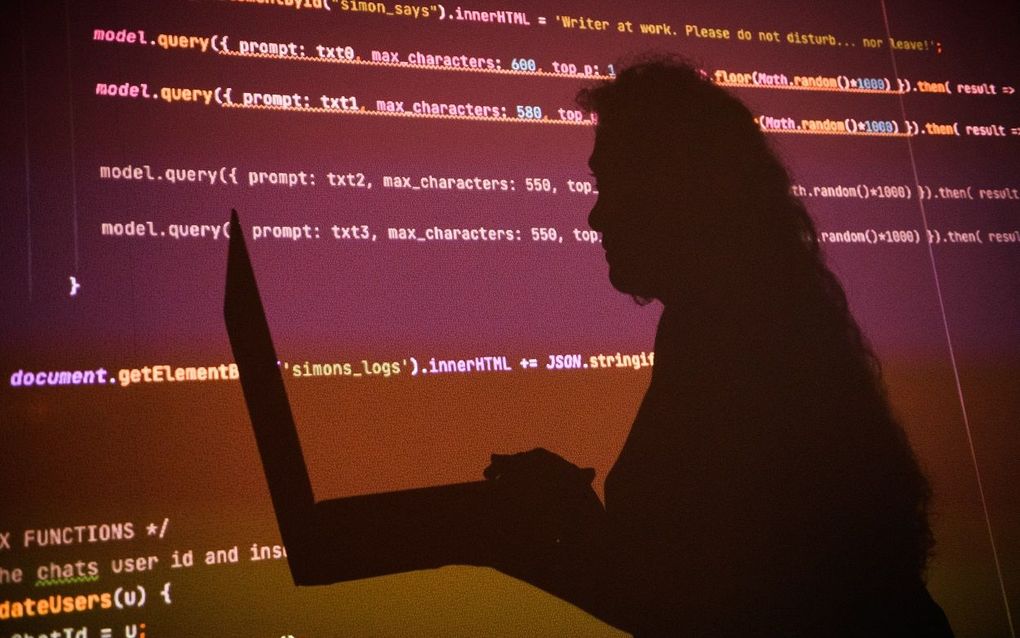
Photo AFP, Clement Mahoudeau
Western Europe
A Dutch professor thinks society is naive about the powers of artificial intelligence. But he also thinks that we should not exaggerate its influence.
For over 20 years, Prof Pim Haselager, professor of Societal Implications of Artificial Intelligence (AI) at Radboud University in Nijmegen, the Netherlands, has been working on artificial intelligence. "I have been working at the university since 1990. We were already working on it back then, but it was named cognitive science."
In recent years, attention to artificial intelligence has increased, Mr. Haselager notices from his agenda. He gives over sixty lectures a year on the subject. He is also regularly asked by the media for comments or by companies for advice on dealing with artificial intelligence. "These machines are, on one hand, many times smarter, but on the other, many times dumber than humans. That's a crazy combination we don't know yet. We are like children playing with a circular saw. If we handle AI incompetently, there could be great damage."
What damage could occur?
"Some experts are spreading panic and discussing machines that will seize power and rule the world. I don't believe in that. However, using AI unwisely could cause a lot of damage.
Consider the scandal surrounding the data company Cambridge Analytica in the United States. The company collaborated in illegally manipulating millions of Facebook users' data to benefit Donald Trump's 2016 campaign. Especially in the US, an extra 10,000 or 20,000 votes in certain states can make big differences.
You can also think of a mortgage lender's algorithm looking at your banking data but also noticing that you are surfing the internet at 3 am and using that in assessing your creditworthiness.
On social media, misuse of AI can have significant consequences. Suppose you post a message on Twitter or Facebook. In that case, an algorithm determines who and where it will appear on someone's timeline. Not because of your interests but because of the economic interests of media companies because they need to sell ads.
With the dating app Tinder, AI determines which photos and profiles you see. It is not in Tinder's interest to give you the perfect partner because you are off Tinder as soon as you have one. Instead, the algorithm wants to keep you on Tinder for as long as possible.
There are more and more algorithms that assess the suitability of candidates for a particular job and even preselect them. These are all pretty intense, sweeping tasks from a machine that ultimately doesn't understand what it's about and has no feelings."
Do you think we havebeen too naive about AI so far?
"Yes, I do think so. At our university, we have a two-year master's in AI and ethics. At that master's, we train students who will advise organisations on responsible innovation. Then the older generation has to make decisions on this, but they are not the most knowledgeable about AI. That means we are now in a vulnerable phase where experts must make sweeping decisions about a technology they don't fully understand."
What impact does AI have on religion?
"I have two students writing an undergraduate thesis on digital immortality from a Hindu perspective. If you upload yourself onto a computer, via a brain simulation, for example, what aspects of being human have you included? And how satisfying or unsatisfying is that from a religious perspective?
In theology, people are often compared to animals or angels. I read that with Thomas Aquinas, for example. He then talks about The Great Chain of Being. In that chain, there is now a new kind of creature we have made ourselves with which we can compare ourselves.
If we talk about neurotechnology: suppose someone gets a robotic arm that he controls via brain activity. How do we see that? Is that a part of ourselves? Is that part of our humanity? Those are interesting new questions that AI poses to religion."
It all sounds a bit theoretical.
"To make it more practical: The Dutch daily Nederlands Dagblad recently featured an interview with a pastor who had had a sermon written via ChatGPT as an experiment. Can the Spirit work through such a sermon? And do the hearers notice if a robot wrote the sermon? You can attend church services in an online world these days. To what extent does that touch the essence of religion and spiritual togetherness? Does that remain intact, or is it affected? Those are questions you can ask in this regard."
Do you see AI as an opportunity or a threat?
"Both. I always make a comparison with water management. Various rivers come into our country, and we cannot stop them. It's the same with technology. It develops, and you cannot stop it. So we have to learn to channelise, just like you do with water. And that means trying to figure out where the dam should be or where the dike should be. That is difficult because technology is evolving, and we cannot predict how it will progress. Fortunately, the European Union is fairly active in regulating AI. It is developing a European digital constitution. I welcome that, although I sometimes criticise specific articles and how the law is worked out."
What is a good attitude for dealing with AI?
"It is important to learn what the strengths and weaknesses of AI are and to remain aware that we cannot trust AI all the time. When a computer produces a text, you should not think that there is a feeling behind it. That there is someone who understands what it is about. So there isn't. If you are aware of that and are alert to it, you know you have to control what such a machine produces carefully. Meaningful human control over AI is crucial."
Haselager says he hopes theologians will better understand artificial intelligence's strengths and weaknesses. "That technology enriches being human, but it can also impoverish it. Furthermore, seeing where the difference between us and machines remains interesting. Especially from a theological perspective. If you believe that a human is created in the image of God, there is something divine in us. What do we pass on to machines? Is that our divine or our ungodly side? Or a mix? Technology holds up a mirror to us. In it, we see aspects of ourselves, but sometimes very distorted. It's interesting to think about that together."
This article was translated and edited by CNE.news. An earlier version of this article appeared in the Dutch Christian daily Reformatorisch Dagblad on June 22nd, 2023.
Related Articles

